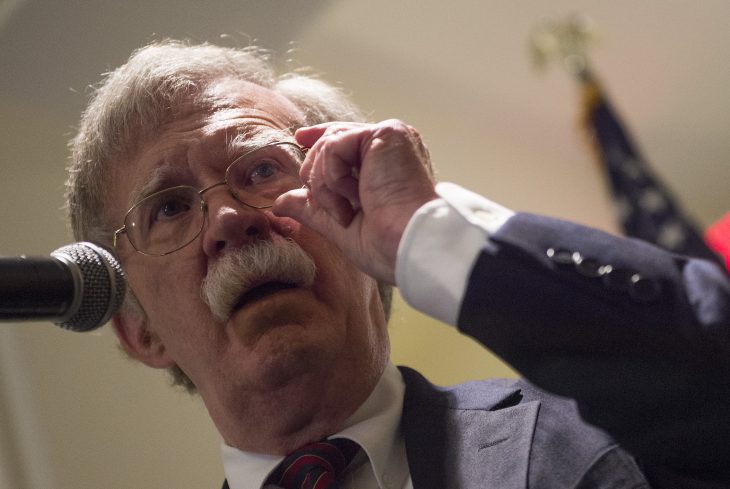The International Criminal Court (ICC) is in the spotlights of global politics after John Bolton, the national security adviser of US President Donald Trump, lashed out at the court. He outlined a strategy to undermine the work of the ICC, but his attacks could also rally its supporters behind the institution.
If there were any doubts about the Trump administration’s position towards the ICC, John Bolton cleared them up. The US president’s national security adviser said on Monday the United States “will not cooperate with the ICC”, “will provide no assistance to the ICC” and “will not join the ICC.” Bolton called the court “ineffective, unaccountable, and indeed, outright dangerous.”
While the Obama administration has taken a constructive approach and supported the work of the institution – for example by assisting in the arrest and transfer of two suspects –, Trump is taking an aggressive stance. His government seems ready to block and undermine the ICC’s activities in the coming years.
For a president who has declared US supremacy his foreign affairs doctrine and strongly opposes multilateralism, this move would only be consequent. In the past three months, the Trump administration withdrew from the UN Human Rights Council, threatened to leave the World Trade Organisation (WTO) and stopped funding UNRWA, the UN agency tasked with supporting Palestinian refugees.
From this perspective, Bolton’s remarks are not so much about the ICC but rather about the policy decisions of the US government. The opposition to the ICC follows logically from Trumps “America First” philosophy and the notion of US exceptionalism that has been shaping US foreign policy for many years – the idea that the United States is somewhat different from other countries. An independent international court is incompatible with this idea since the principle that there should be no differences and that no one should be above the law is deeply enshrined in the ICC’s DNA. For hawks like Bolton and Trump, the ICC is therefore the embodiment of an international order they detest. The Guardian called the attack on the ICC “the unacceptable face of US exceptionalism.”
European states react
Most commentators focussed on the negative effects of Bolton’s speech for the ICC, for example because other states might take it as an excuse to reduce their support as well.)
In reality, however, the increasing disengagement and aggression of the US government often provoked a countermovement. When the Trump administration decided to stop funding sexual and reproductive health programmes for women in developing countries, a coalition of European and African states raised more than 300 million dollars. When it announced the decision to stop funding UNRWA, the European Union, Ireland, Jordan and Germany stepped in.
Similarly, Bolton’s attacks could rally supporters of the ICC behind the institution. Either because they fear finding themselves aligned with Trump, or because they genuinely support the court and the concept of international criminal justice. The first reactions are already indicating European governments are distancing themselves from the anti-ICC rhetoric. The German Foreign Office tweeted it is “committed to the work of the ICC - in particular when it comes under fire.” Alluding to US threats to undermine the ICC, France said that the court should be able to work “without hindrance.” Liechtenstein said on Tuesday it “strongly supports the work of the ICC.”
Bolton’s strong words could thus lead to a renewal of the support and commitment to the court. A welcome paradox for the ICC, which has never appeared so weak politically and was challenged from within, this very week, in The Hague, by Jordan and other member states on the scope of the court’s powers.






